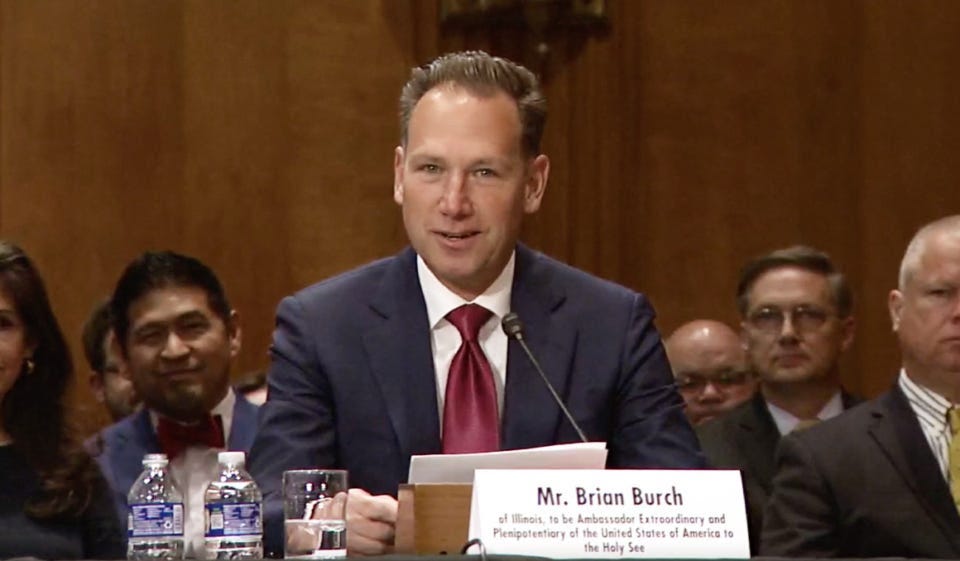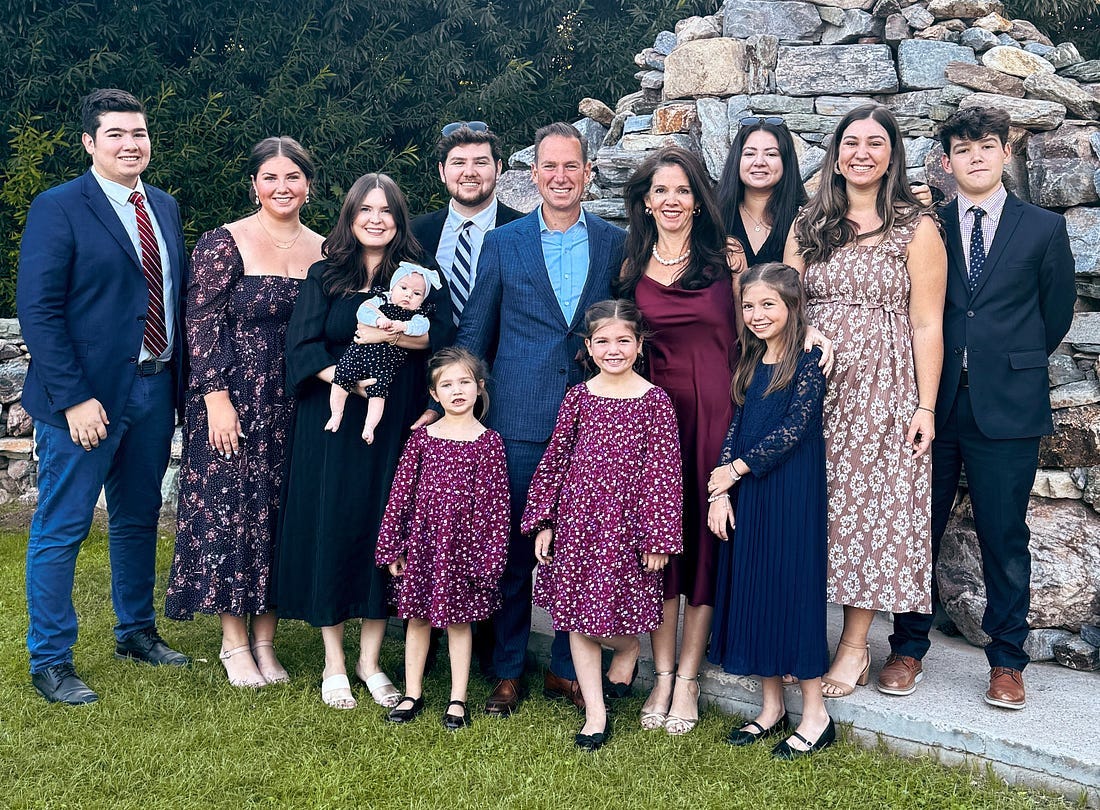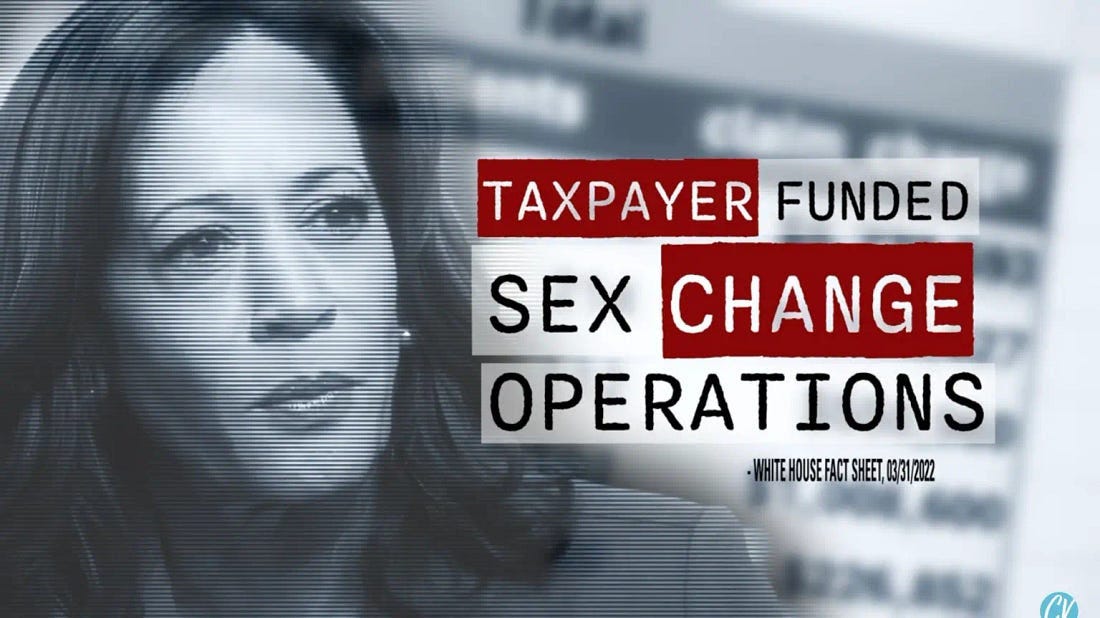Trump's Pick for Ambassador to Holy See Defends U.S. Foreign Aid Cuts
At his Senate confirmation hearing, Brian Burch said "millions, if not billions, of our dollars have been going to places around the world that are not aligned with the United States’ interests.”

By Gary Gately
Brian Burch, President Donald J. Trump’s nominee for U.S. ambassador to the Holy See, defended the administration’s deep foreign aid cuts on Tuesday even as Catholic relief groups warn that slashing the spending threatens the lives of millions of the world’s poorest people.
The comments from Burch, president of the influential conservative organization CatholicVote, came during his Senate confirmation hearing.
But Burch, who has often criticized Pope Francis, referred only briefly to the 88-year-old Jesuit pontiff, who had been hospitalized about five weeks before being discharged March 23. Burch expressed “heartfelt prayers and well wishes on behalf of all Americans for the Holy Father for a full and swift recovery.”
CatholicVote’s support for Trump helped him win the Catholic vote by a larger margin than any presidential candidate in more than a half-century. His election drew praise from conservative Catholic organizations and pro-lifers, while more progressive Catholic groups, LGBTQ Catholics and immigration advocates expressed dismay and anxiety. Pope Francis and many U.S. bishops have denounced the Trump administration’s aggressive immigration policies as un-Christian, and the Vatican has condemned slashing U.S. foreign aid.
Testifying before the Senate Foreign Relations Committee, Burch, a Catholic father of nine children who lives in suburban Chicago, said he was “deeply honored and humbled” by his nomination to the post, calling it a “role of great significance.”
"The relationship between the United States and the Holy See is both unique and vital,” Burch said. “It transcends traditional diplomacy, rooted instead in our shared commitments to religious freedom, human dignity, global peace and justice….
“We can and we must continue our strong partnership while advancing our mutual interests in addressing an array of global challenges, including working to resolve war and conflict in local regions around the world, religious persecution, the exploitation of the poor and vulnerable, the scourge of human trafficking, and the defense and portion of human dignity and prosperity.”
New Hampshire Senator Jeanne Shaheen, the committee’s ranking Democrat, repeatedly questioned Burch about the Trump administration’s decision to eliminate most foreign aid.
She quoted the secretary general of the Vatican’s international humanitarian aid network Caritas Internationalis as saying that abruptly dismantling the U.S. Agency for International Development would “kill millions of people” and “condemn hundreds of millions more to lives of dehumanizing poverty.”
Shaheen then asked Burch: “How will you reassure the Holy See that the United States really is committed to saving the lives of those in need and preventing suffering around the world?”
“I know this is going to be a very challenging issue… because of the Holy See’s pattern and record of leadership when it comes to humanitarian causes and humanitarian assistance,” Burch replied. He added that the Holy See has been an “exceptional partner for the United States” and praised Catholic NGOs that provide humanitarian assistance, saying they have “some of the best, some of the lowest cost of overhead and some of the most effective and most impactful programs.”
But, he added: “Millions, if not billions, of our dollars have been going to places around the world that are not aligned with the United States’ interests.”
Shaheen pressed Burch to name programs not in keeping that had not been in keeping with U.S. foreign policy, to which he replied that he had “read some of the stories” about “some transgender mice experiments.” That’s an apparent reference to a widely circulated claim that Shaheen said has been debunked.
Burch praised Trump and Secretary of State Marco Rubio “for having the courage to take seriously the dollars the taxpayers invest in our country and that we spend around the world and to make sure that they are aligned with the United States’ interests.”
Rubio, a Catholic who had been an ardent supporter of USAID during his 14 years as a Florida senator, made clear upon taking office as secretary of state that he was “recharging and refocusing our foreign aid on places that would make America safer, stronger and more prosperous,” Burch told the committee. He noted that some foreign aid programs that had been terminated have been restored and that others may be after further State Department review
Senator Pete Ricketts, a Nebraska Republican, asked Burch about the Vatican’s decision in October to extend by four years a controversial provisional agreement with China giving its leaders some say over who Pope Francis appoints as bishops in the communist country.
The Vatican described the decision as a means of “furthering the respectful and constructive dialogue with the Chinese Party, in view of the further development of bilateral relations for the benefit of the Catholic Church in China and the Chinese people as a whole.”
But Ricketts asserted that Chinese President Xi Jinping has authorized the construction of “state-approved, state-controlled Catholic churches” in a country with a long history of persecuting religious minorities.
Burch said that if the full Senate approves his nomination that he would urge the Vatican to end the agreement, as the first Trump administration had.
“I think it’s important for the Holy See to maintain a posture of pressure, and of applying pressure to the Chinese government around their human rights abuses, particularly their persecution of religious minorities, including Catholics,” he said. “I do not believe the Church should cede or surrender to any government, China or otherwise, the selection of their bishops.”
Ricketts praised Burch as a “champion of the poor, the vulnerable and preborn babies” and “a man of great integrity with a passion for truth, justice, and patriotism.”
“He firmly believes in the tenets of the Catholic faith and, in particular, a concept that we have called the common good,” Ricketts added.
Burch also stressed the need for the U.S. and the Vatican to work together to stop persecution of religious minorities throughout the world, including Christians in the Middle East, Nigeria and other parts of Africa.
While refraining from criticism of Pope Francis during Tuesday’s hearing, Burch and the growing number of other conservative Catholics in the deeply polarized U.S. Church have repeatedly taken aim at the Holy Father on numerous issues.
After Francis approved allowing priests to bless same-sex couples in December 2023, for example, Burch posted on social media that the move would cause “massive confusion” and “destroy” Catholic teaching on human sexuality.
Burch also accused Francis in a November 2023 New York Times interview of a “pattern of vindictiveness and punishment” against prominent bishops who criticized him, proving his goal of synodality to make the Church more inclusive amounted to “progressive Catholic cheerleading” and “merely a ruse.”
Francis has minced no words in criticizing Trump, particularly on immigration, dating to Trump’s first campaign in 2016, when the pope said anybody who advocates building a wall to keep migrants out is “not a Christian.”
And in a February letter to U.S. bishops, Francis condemned Trump’s mass deportation plan, writing: “I exhort all the faithful of the Catholic Church, and all men and women of goodwill, not to give in to narratives that discriminate against and cause unnecessary suffering to our migrant and refugee brothers and sisters.”
Burch and CatholicVote, however, have vigorously defended Trump’s aggressive immigration policies, including in 2024 campaign ads asserting that “terrorists,” “convicted criminals,” “gang members” and tens of thousands of unaccompanied migrant children had poured across the southern U.S. border during Joe Biden’s presidency.
CatholicVote spent millions of dollars last fall on swing-state TV ads targeting then-candidate Vice President Kamala Harris, and on voter outreach. The anti-Harris ads pounced on what the group called her support for taxpayer-funded gender reassignment surgeries on children.
The 30-second spots warned: “Kamala Harris supports these taxpayer-funded sex-change operations. A vote for Harris: a vote for medical experiments on kids.”
Burch told The New York Post in September: “Most people have no idea of the size, scope and money involved in the trans agenda being pushed on our kids.”
LGBTQ groups immediately criticized the ads as intentionally misleading and inflammatory.
Gender-change surgeries on minors are, in fact, extremely rare in the U.S.
Last April, the Vatican condemned gender theory, or the idea that one’s gender can be changed, and sex-change surgery as “grave threats to human dignity” in a highly anticipated document signed by Pope Francis.
After Trump’s election in November, CatholicVote posted on X (formerly Twitter): “Catholic voters played a decisive role in the historic victory of Donald Trump and [running mate] JD Vance. Catholics proved again to be a critical voting bloc that cannot be ignored. Trump and Vance won Catholics by a massive margin by promising to improve the lives of those most impacted by inflation, and by promising to bring about a humane and orderly solution to the chaos at the border.”
The group added: “Catholics are increasingly attracted by the agenda of the new right, popularized by Trump, which combines family-first social policies with America-first economic priorities.”
At the confirmation hearing Tuesday, Burch said he is by no means anti-immigrant, noting that he had worked alongside migrants at a relative’s produce farm in Phoenix starting at age 12 and still has great compassion for migrants.
Burch, the oldest of six children, attended Phoenix Catholic schools and the University of Dallas, a small Catholic university in Irving, Texas. He co-founded CatholicVote in 2005 with two fellow Catholic conservatives and is the author of “A New Catholic Moment: Donald Trump and the Politics of the Common Good,” published in 2020.
But Burch has not always been such a staunch Trump supporter.
In fact, during Trump’s first presidential campaign in 2016, he joined about 20 co-authors in “An Appeal to Our Fellow Catholics,” which stated in part: “Donald Trump is manifestly unfit to be president of the United States. His campaign has already driven our politics down to new levels of vulgarity. His appeals to racial and ethnic fears and prejudice are offensive to any genuinely Catholic sensibility…. And there is nothing in his campaign or his previous record that gives us grounds for confidence that he genuinely shares our commitments to the right to life, to religious freedom and the rights of conscience, to rebuilding the marriage culture, or to subsidiarity and the principle of limited constitutional government.”
CatholicVote did not respond to a request for comment from Burch.
Watch Brian Burch’s Senate confirmation hearing.




